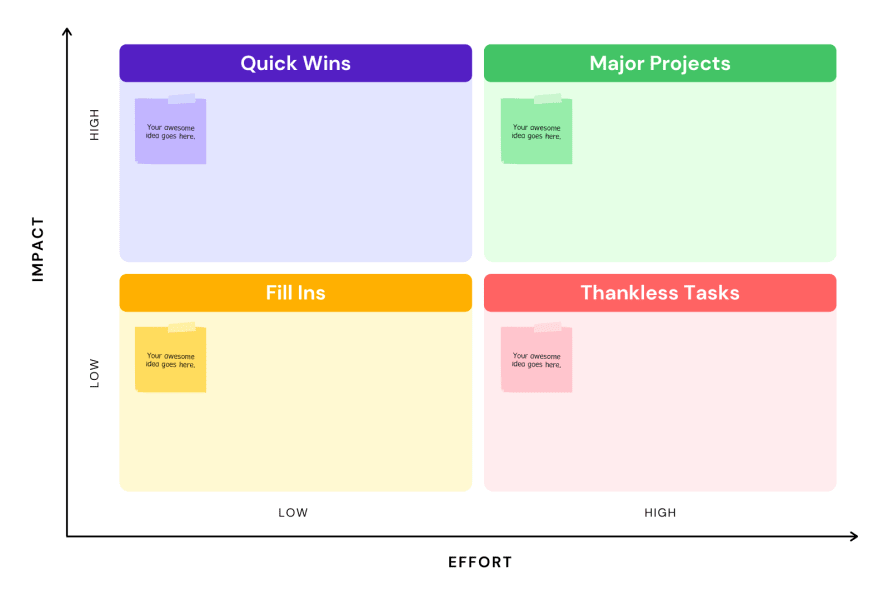How to find time for work and leisure as a student

Read Time: 3 Minutes
A 2018 study on women in the Hubei province of China reported that those who underwent time-management training had lower anxiety and depression levels, along with higher sleep quality.
A lot of students can easily feel overwhelmed by their workload, often leading to mental health challenges such as feels of stress, anxiety and depression.
In order to cope, people may suggest an array of stress-relieving activities. Amongst these, most commonly, are sports, yoga, and creative endeavours.
Except, many of these activities can consume lots of time - the same time that people fear they lack to excel in their studies.
Consequently, many students will frequently wonder how they’re meant to juggle both of the above. So, we’ve provided a few solutions that might help alleviate your time-management worries.
Timetables
Time spent: 5-10mins
Time saved: 10-20h/week

Naturally, timetables will be the first thing to spring to mind when thinking of time management. Even though some may find them restrictive, a timetable can be extremely liberating. It enables you to tackle each day with the knowledge that you can finish everything you need, all whilst giving yourself time to breathe.
If it feels too monotonous, a great idea would be to create a new timetable at the turn of each week. That way, you can also identify which areas of your life will require more of your time, and plan accordingly.
You’ll have to plan them around the timetables you already have, which might make them predictable at times. However, they can be a great way to get the best out of your weekends, since your studies won’t be as big a concern then.
Eisenhower matrix
Time spent: approx. 3mins
Time saved: 1-2h/day

If you feel like you’ve got too much to fit into a timetable, this might just be the one for you. Former US president Dwight D. Eisenhower suggests building a matrix, or to-do list, subdivided into four parts: Urgent / Important; Urgent / Not Important; Not Urgent / Important; Not Urgent / Not Important.
That way, you know exactly what to focus on and for when. If you feel overloaded and you have tasks you can put on hold or skip altogether, this can give you ample room for your primary tasks, and of course, needs.
For perfectionists, you can now better redirect your efforts. And for all you procrastinators, at least you now know what to procrastinate on…
Pomodoro Technique
Time Spent: None
Time saved: 15 mins-2h/day

Of course, time is worthless if you’re unable to use it effectively. If you don’t have any trouble focusing on work, this won’t be the most compelling addition to your arsenal.
But for those who do, this technique can be life-changing. It usually consists of setting a timer for 25 mins of serious work and inserting 5 min breaks between these timeframes.
You can obviously alter these time lengths according to the task at hand, or your personal working capacity. But it’s a brilliant way of consolidating your attention towards an assignment, and regularly recuperating.
Screen Time
Time Spent: 2mins once
Time saved : 3h/day

New data would suggest that teens aged 15-18 spent an average of 7.5h daily on screens. A majority of that time is spent on entertainment purposes.
Although daunting at first, screen time is the most surefire way of reducing time wasted on screens.
Evidently, millennials are infamous for breaching screen time limits. So if you think you might be part of them, don’t allow additional time, or get someone else to create screen time passwords so you can’t alter any settings.
With time, the temptation will likely fade. Besides, there are plenty of entertaining activities that with a fraction of your usual screen time, could deliver thrice the amount of satisfaction.
It’s important to remember that some of these solutions may not go together, or, ironically, will consume too much time when executed simultaneously.
So you should identify which ones are best suited to you. And most importantly, be honest with yourself. Are you a slow starter? Do you take on more than you can handle?
Time management will be paramount to your academic success and well-being, throughout school and uni. So take care not to neglect it.
If you have a condition or lack of motivation that makes time management too difficult, don’t hesitate to talk about it with friends and family, and consider counselling or therapy.
Author Bio
This blog was created by our talented intern Omar, who is 15 and currently doing work experience here with us at true student. Omar is an incredibly bright student who aspires to study psychology/neuroscience at LSE. We hope you’ll all join us in wishing Omar the best of luck in his future studies!